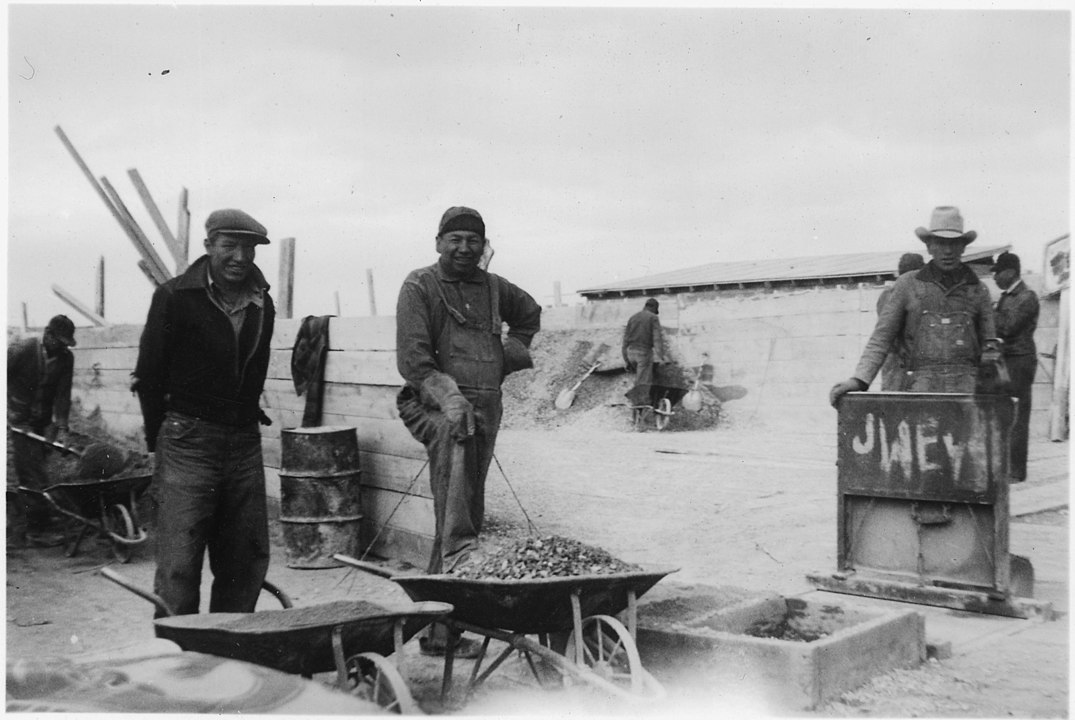
- Details
- By Jenna Kunze
The Department of the Interior today announced a $29 million investment in dam safety programs for tribal communities.
The money, included in the $13 billion Bipartisan Infrastructure Law’s spending on tribal communities across the country, will specifically benefit the Bureau of Indian Affairs’ Irrigation, Power, and Safety of Dams programs.
Six dams that currently exceed safety guidelines will be re-designed and repaired— including one at the Fort Apache Reservation in Arizona, one at the Crow Reservation in Montana, and two at Pine Ridge Reservation in South Dakota.
The reservoir formed by Oglala Dam on the Pine Ridge Reservation was drained in 2019 to protect communities downstream after flood damage. The repair project, slated for completion in 2026, will repair damages and restore an important local water supply for the Pine Ridge community, according to the Interior’s press release.
“In addition to the resources we have allocated for irrigation power systems and water sanitation systems in Indian Country, today’s announcement will further safeguard tribal water supplies, supporting families and communities,” Secretary of the Interior Deb Haaland said in a statement. “This is yet another step in the Biden-Harris administration’s effort to put investments into communities that need them most.”
Assistant Secretary for Indian Affairs Bryan Newland said that maintenance and repairs on dams have been delayed for years, amounting to today’s maintenance cost of more than a billion dollars.
He said that the $29 million investment “will make communities safer and provide additional water for irrigation and other purposes.”
More Stories Like This
Southern Sierra Miwuk Nation Gets 900-Acres ofLand BackChilkat Indian Village Tells New Palmer Mine Owners They Are “Not Welcome” in Chilkat Valley
Tribes, Coastal Group Ask Army Corps to Revoke Permit for Texas Export Terminal
Michigan Tribes Tell Supreme Court: Don’t Bail Out Enbridge
Alaskans Raise More Than $1 Million For Communities Devastated by Typhoon Halong
Help us defend tribal sovereignty.
At Native News Online, our mission is rooted in telling the stories that strengthen sovereignty and uplift Indigenous voices — not just at year’s end, but every single day.
Because of your generosity last year, we were able to keep our reporters on the ground in tribal communities, at national gatherings and in the halls of Congress — covering the issues that matter most to Indian Country: sovereignty, culture, education, health and economic opportunity.
That support sustained us through a tough year in 2025. Now, as we look to the year ahead, we need your help right now to ensure warrior journalism remains strong — reporting that defends tribal sovereignty, amplifies Native truth, and holds power accountable.
 The stakes couldn't be higher. Your support keeps Native voices heard, Native stories told and Native sovereignty defended.
The stakes couldn't be higher. Your support keeps Native voices heard, Native stories told and Native sovereignty defended.
Stand with Warrior Journalism today.
Levi Rickert (Potawatomi), Editor & Publisher


